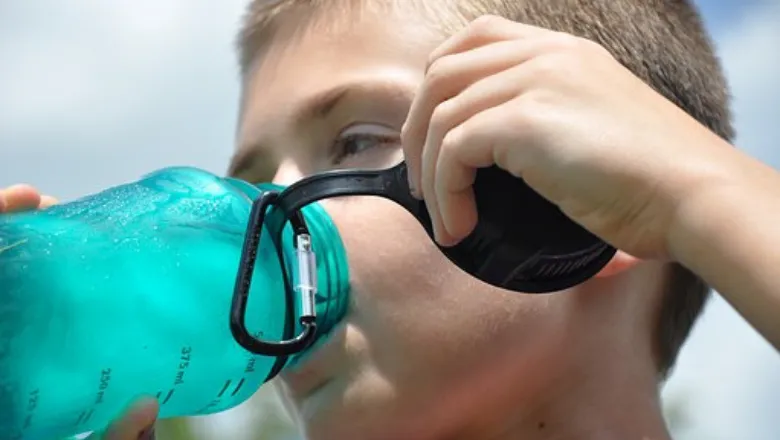We see BPA-free plastics everywhere. Measuring the effects of BPA substitutions was, therefore, an obvious thing to do.
Dr Robin Mesnage
30 August 2018
Research leading to law changes in New York State
Recently published work from the School of Basic & Medical Biosciences could lead to a law change in New York State that bans the sale of children’s products containing the plastic hardening chemical, bisphenol-A (BPA) and six BPA substitute chemicals.

Current legislation in many states and countries, including Canada, China and some EU countries, already prohibits the sale of children’s products that contain BPA due to its toxic effects on the human body. But if this new bill is accepted and taken into law, it will mean that six BPA substitution chemicals – previously thought to be safe –will be also banned for use in products for children under the age of three.
Why Bisphenol-A?
Bisphenol-A (BPA) is a chemical used in certain plastics to make it hard and shatter-proof. However, recent research has shown that BPA can leak out of these products into human bodies and have harmful effects even at low doses. Some of the health impacts linked to BPA exposure include obesity, genital defects and hormone dependent-breast cancer. It has been suggested that young children and pregnant women are the most at-risk of exposure to these chemicals.
Because of the growing evidence about the negative effects of using BPA in products, many manufacturers have turned to a series of bisphenol alternatives and started labelling these as “BPA-free”. However, until now, the toxicity of many of these alternative chemicals had not been studied extensively.
Dr Robin Mesnage and Dr Michael Antoniou, from the Department of Medical & Molecular Genetics, and their Gene Expression and Therapy Group studied six BPA-alternative chemicals and their effect on breast cancer cells. The examined chemicals were bisphenol AF (BPAF), bisphenol Z (BPZ), bisphenol S (BPS), bisphenol F (BPF), bisphenol AP (BPAP) and bisphenol B (BPB).
The group found that all six of the alternatives mimicked the negative effects seen in hormone-dependent breast cancer cells. They also noticed that three of the alternatives, BPAF, BPB and BPZ were more potent than BPA.
Policy changes
As a result of this research, a bill has been put forward to the New York State Assembly to amend the current ‘Bisphenol A-free Children and Babies Act’ from 2010 to include a ban on all BPA-substitute chemicals.
Of the changes, lawmakers wrote: ‘This legislation will help eliminate child exposure to these potentially harmful hormone-like chemicals and help prevent adverse substitutions to BPA.’
The bill is in its final stages of approval and the change to policy are expected to take effect on 31 December 2019.
BPA is the tip of the plastic iceberg. I am proud that our work is helping regulators embrace the bigger picture.
Dr Mesnage
‘We’re delighted that politicians in the State of New York have taken on board the health implications of our findings and pushing through legislation to better protect the public, especially children.‘This is how policy should be shaped, based on the latest solid scientific evidence, which our work provides. Hopefully, other regions and nations will follow suit.’
Dr Michael Antoniou
BPA and BPA-substitutes are currently not banned in the UK.
Read the paper here.
